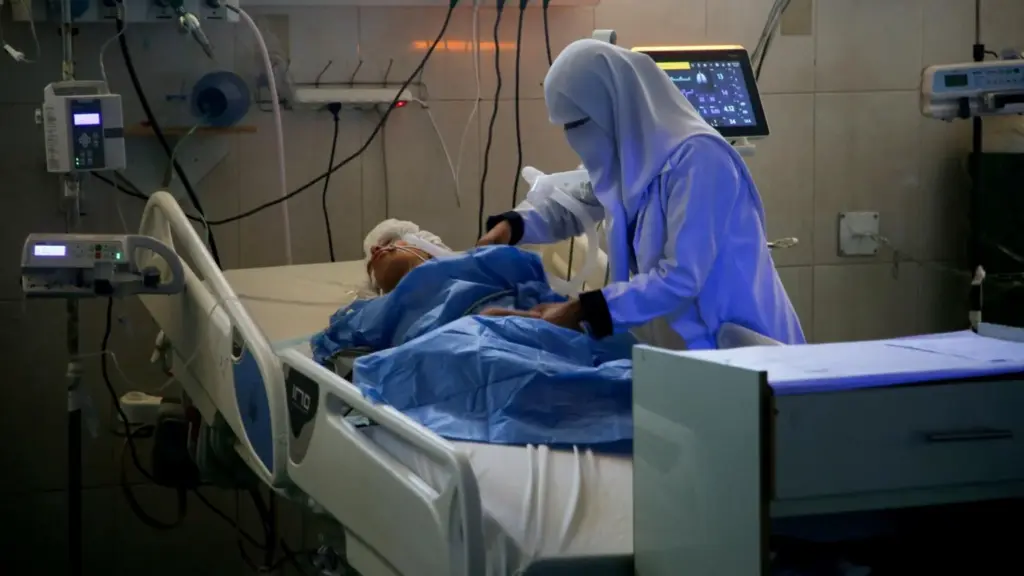Gaza’s largest functioning hospital, Nasser Medical Complex, is facing an imminent humanitarian disaster, with medical staff issuing dire warnings due to a critical fuel shortage and the escalating Israeli ground offensive in Khan Younis.
The hospital was forced to halt patient admissions on Thursday amidst reports of Israeli troops and tanks advancing to within 200 meters of the facility. Witnesses described Israeli forces operating in a cemetery adjacent to the hospital, with accounts of firing towards nearby camps for displaced families. While Israeli forces reportedly withdrew on Friday, the damage and lingering threat have left medical staff and vulnerable patients in a precarious state.
The immediate concern is the dwindling fuel supply, which threatens to shut down essential life-saving services. Dozens of patients in intensive care, many dependent on ventilators, are at extreme risk. Hospital staff have expressed profound fear, with messages indicating they are “closer to death than to life” as tanks operate mere meters away. Efforts to conserve power have been intensive, restricting electricity to only the most critical departments, including intensive care and neonatal units. However, generators were expected to cease functioning within a day, plunging the hospital into darkness and life-threatening conditions for its most vulnerable patients.
The Israeli military stated on Friday morning that its armored brigade was engaged in dismantling “terrorist infrastructure sites” and confiscating weapons in Khan Younis, noting prior evacuation orders for areas surrounding the hospital. While an Israeli military official mentioned that approximately 160,000 liters of fuel destined for hospitals and humanitarian facilities had entered Gaza, they emphasized that distribution within the territory was not the army’s responsibility.
The situation at Nasser hospital underscores a broader crisis in Gaza, with critical shortages of medical supplies, particularly for trauma care. A World Health Organization (WHO) representative recently described the facility as “one massive trauma ward,” treating approximately 700 patients against its 350-bed capacity. Exhausted staff are reportedly working around the clock, managing hundreds of trauma cases weekly, many linked to incidents at aid distribution sites. Heartbreaking accounts include a 13-year-old boy shot in the head and left tetraplegic, and a 21-year-old man with a bullet in his neck, also tetraplegic, both seeking aid for their families.
In related developments, reports indicate that eight people, including a senior Hamas commander, Iyad Nasr, were killed in an Israeli air strike on a school sheltering displaced families in Jabalia. Another Hamas commander, Hassan Marii, was reportedly killed in a separate strike in the al-Shati refugee camp. These events occur as Israeli Prime Minister Benjamin Netanyahu expressed optimism about a Gaza ceasefire and hostage release deal, potentially within days, following his U.S. visit. However, Palestinian officials suggest indirect negotiations remain stalled due to disagreements over aid distribution and Israeli troop withdrawals.
The ongoing conflict, initiated by Hamas’s October 7th attack on Israel, has resulted in a devastating humanitarian toll in Gaza, with the territory’s health ministry reporting at least 57,762 fatalities since the conflict began.

